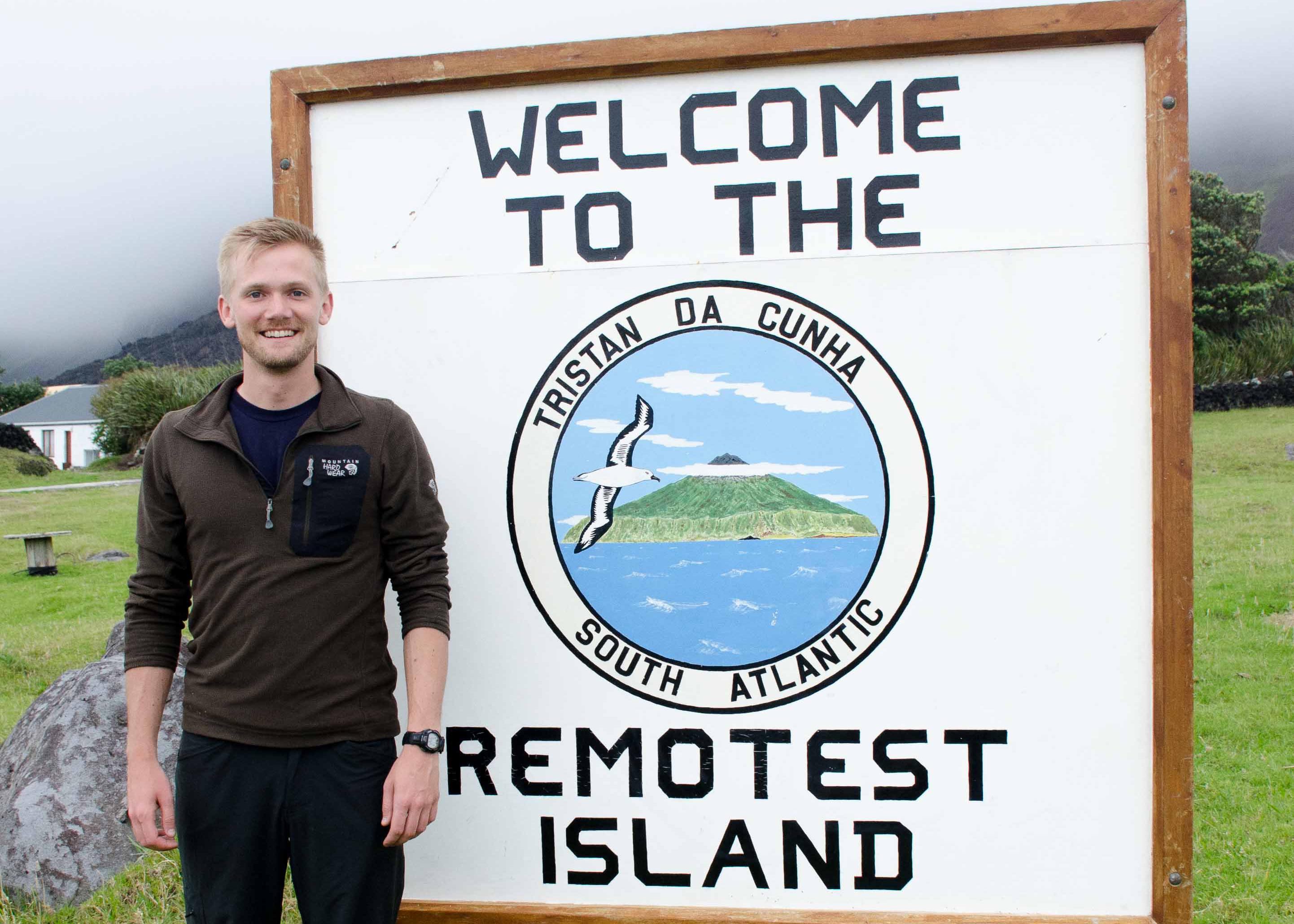Protecting the Ocean’s Wild Places

Dan Myers ’11
Former environmental studies major Dan Myers ’11 blends his interests in environmental policy and science with international relations as the international policy manager for the National Geographic Pristine Seas project, helping develop policy strategy to protect the last wild places in the ocean. His work helps the global community to achieve its goal of protecting 10 percent of the ocean by 2020.
Can you speak to how Dickinson’s useful liberal-arts education helped you along your career path?
Dickinson’s liberal-arts education lends perspective. Because of my Dickinson education, I’m able to draw from multiple disciplines: science, international policy and even art to solve complex challenges. This kind of flexibility is critical for modern-day international policy and advocacy.
What was your favorite activity/organization at Dickinson?
Liberty Caps—I loved connecting with new students as a tour guide and talking about all things Dickinson. I also became highly adept at walking backwards!
What jumps out as a great memory from your time at Dickinson?
My senior year, our environmental science class took a field trip to tour fracking sites in northeastern Pennsylvania. After years of reading about the development of fracking in the region, it was fascinating to visit a local community that was at ground zero of the industry. Talking with locals about the benefits and costs of the practice was eye-opening in a way that wouldn’t have been possible with classroom activities alone.
How do you stay involved with Dickinson?
There’s a strong network of Dickinsonians in Washington, D.C., with whom I am frequently in contact. It’s great to be part of a community that is so willing to help new graduates who move to the city.
How did you get interested in your work, and what about it excites you most?
When I was a kid, I was fortunate to travel to some really remote places, from deep in the Peruvian jungle to the Arctic tundra. I didn't realize it then, but during those trips I started to fall in love with truly wild places. Over the years, I also developed a love for politics and international relations. Now in this career, I've figured out how to combine all of these interests to help protect those places I fell in love with as a kid. It's a really exciting time to be involved with this community—momentum is on our side.
What does your current work entail?
I work for National Geographic Pristine Seas, an effort to explore, document and protect the last wild places in the ocean. Founded eight years ago by National Geographic Explorer-in-Residence Enric Sala, the program has helped to protect more than 5 million square kilometers of ocean. In my role, I help the team to develop policy strategy to protect these places. It requires knowledge of international politics, economics, science, filmmaking and even psychology.
What is the most challenging part of your work?
Politics are slow, but the growing nature of the threats to our environment are fast moving and, in some cases, nonlinear. Understanding the scale of the challenge and required solutions can be quite humbling.
What comes to mind as something unforgettable that you’ve done since you graduated?
This past January, I joined our team's expedition to Tristan da Cunha, the most remote inhabited island on the planet. It’s halfway between South Africa and Uruguay, a seven-day boat ride from Cape Town. For three weeks, our team explored the waters of this remote archipelago to help the island community enhance their knowledge of local surroundings and plan for its future. It was the trip of a lifetime—especially after I narrowly avoided getting vomited on by a baby albatross spewing neon orange vomit!
If you could have dinner with anyone famous, living or dead, who would it be?
Ansel Adams—He brought the beauty and majesty of America’s wilderness to the public in a way that no one else ever has.
You just built a time machine: where and when do you go?
To the point in the future when humanity develops the capacity to leave the galaxy and return (in a reasonable amount of time).
If you could change one thing about your life, what would it be?
I would delete all social media. Sadly, it’s a work necessity.
TAKE THE NEXT STEPS
Published November 10, 2017